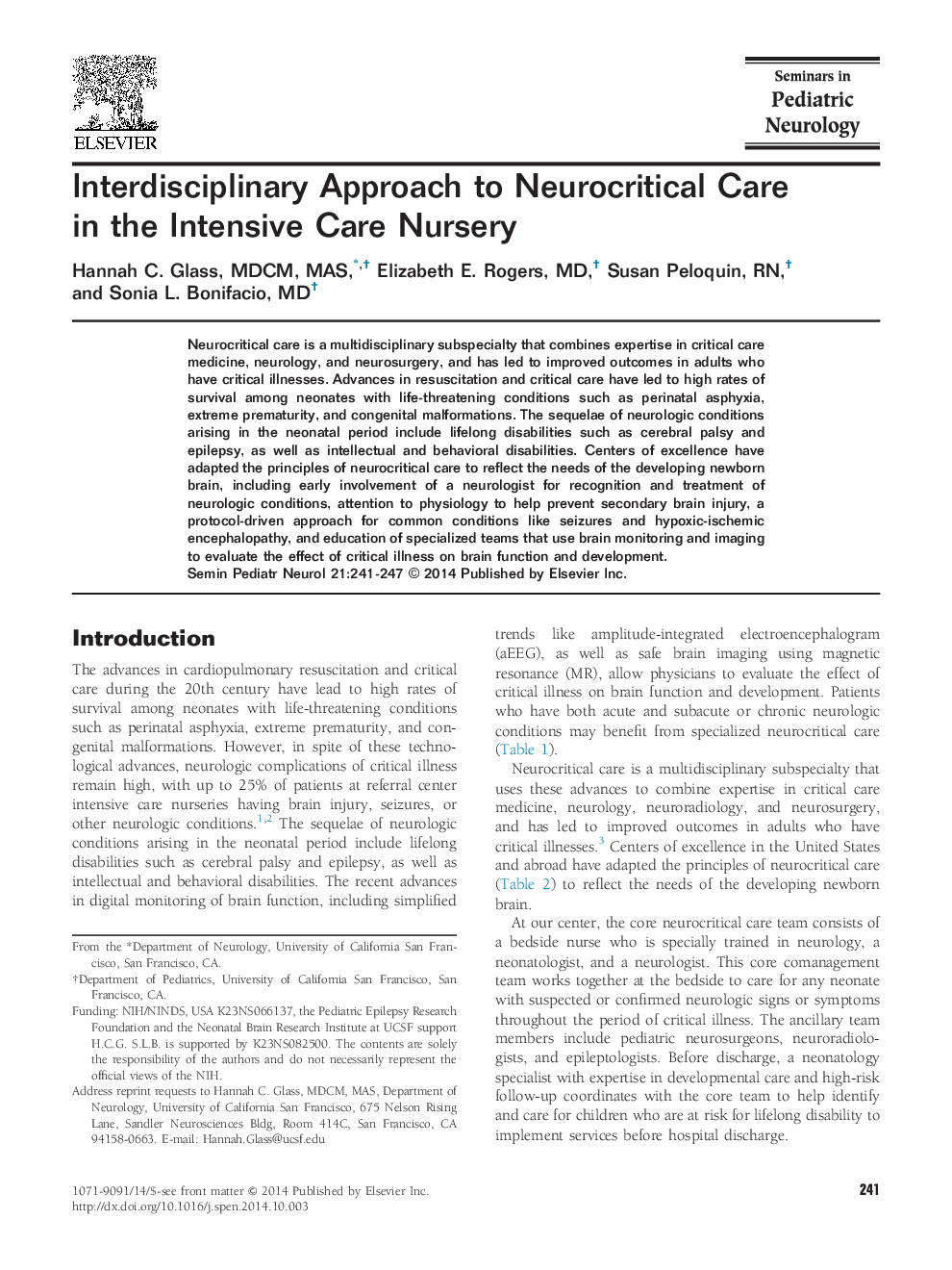| Article ID | Journal | Published Year | Pages | File Type |
|---|---|---|---|---|
| 6042755 | Seminars in Pediatric Neurology | 2014 | 7 Pages |
Abstract
Neurocritical care is a multidisciplinary subspecialty that combines expertise in critical care medicine, neurology, and neurosurgery, and has led to improved outcomes in adults who have critical illnesses. Advances in resuscitation and critical care have led to high rates of survival among neonates with life-threatening conditions such as perinatal asphyxia, extreme prematurity, and congenital malformations. The sequelae of neurologic conditions arising in the neonatal period include lifelong disabilities such as cerebral palsy and epilepsy, as well as intellectual and behavioral disabilities. Centers of excellence have adapted the principles of neurocritical care to reflect the needs of the developing newborn brain, including early involvement of a neurologist for recognition and treatment of neurologic conditions, attention to physiology to help prevent secondary brain injury, a protocol-driven approach for common conditions like seizures and hypoxic-ischemic encephalopathy, and education of specialized teams that use brain monitoring and imaging to evaluate the effect of critical illness on brain function and development.
Related Topics
Life Sciences
Neuroscience
Developmental Neuroscience
Authors
Hannah C. MDCM, MAS, Elizabeth E. MD, Susan RN, Sonia L. MD,
